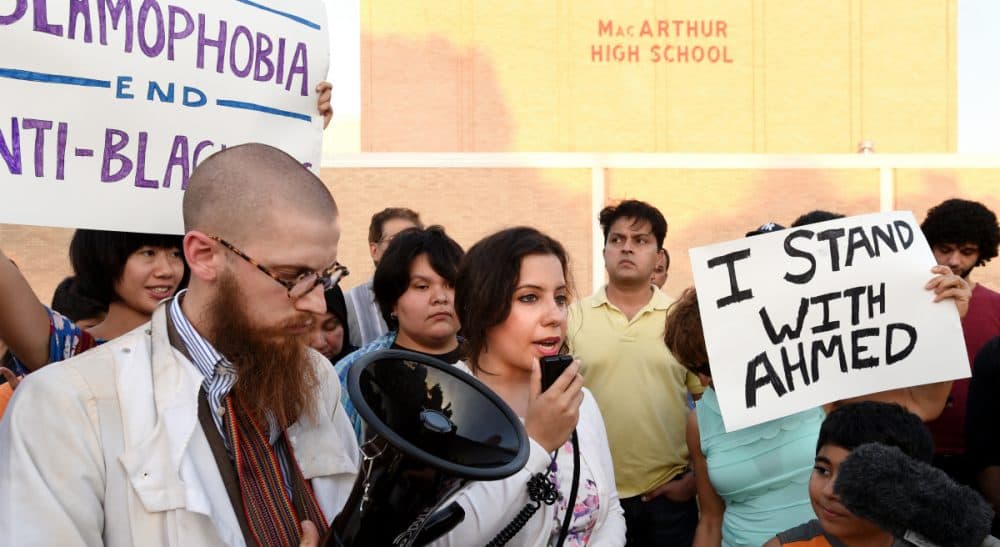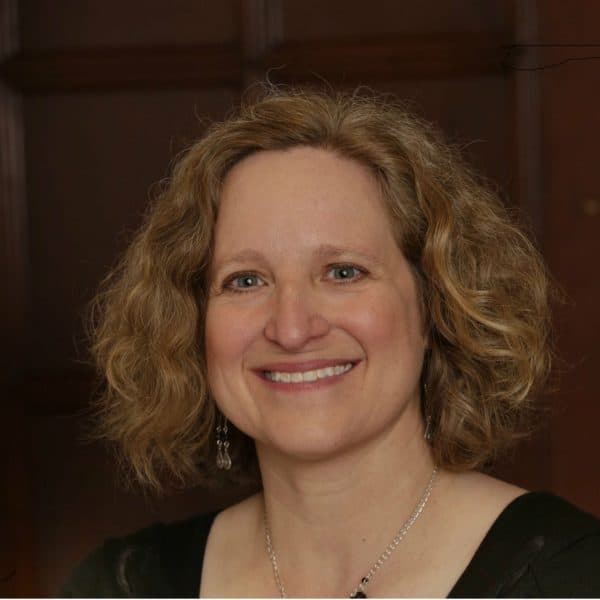Advertisement
Ahmed Mohamed And The Problem Of Religious Intolerance In Our Schools

Oh, that’s just Texas. No self-respecting teacher elsewhere would accuse a 14-year-old Muslim boy of making a fake bomb when all he did was bring in an invention to show off his engineering prowess.
I’ve seen and heard that kind of comment many times since the news broke last week about Ahmed Mohamed and the homemade clock he brought to his Irving, Texas, high school. Well, sadly, such stereotyping does happen in schools here and around the country. Teachers have shown bigotry. So have students who thought it was funny to poke fun at American Muslim boys and girls by asking if they had bombs in their backpacks. I know, because I heard their stories over the last few years while reporting for a book describing schools’ efforts to teach about world religions. Peers also have teased Sikh and Hindu youths with the same barbs, mistaking them for Muslims.
...it wasn’t a shock that a boy named Ahmed Mohamed was taken away in handcuffs from an Irving school for a bogus accusation.
Yes, Texas, and the city of Irving in particular, have a deserved reputation for Islamophobia. In April of this year, Irving’s mayor and city council members voted to pass a resolution supporting a state measure that would prohibit the use of foreign law, a proposal bashed by critics for targeting Muslims. So it wasn’t a shock that a boy named Ahmed Mohamed was taken away in handcuffs from an Irving school for a bogus accusation. No charges were filed, and police released the boy.
It’s easy to brush off Ahmed’s situation as another typical Texas tale. I lived and worked for six years in Dallas, just 15 miles from Irving. Not all Texans are bigoted. Not all New Englanders are not.
When I heard about Ahmed, I immediately thought of Zain Tirmizi of Wellesley. I first met Zain and his parents four years ago. At the time, Zain was 12-years-old and in the sixth grade at Wellesley Middle School. His parents, physicians from Pakistan, told me how they almost didn’t send Zain to the predominantly white Wellesley Middle School out of fear he would be bullied as one of the few Muslims. In elementary school, Zain was, as far as he knew, the only Muslim, and some kids noticed. In fourth grade, a boy approached Zain at his locker and said, “You’re a Muslim. I’m going to check you for bombs.” This story has a happier ending than Ahmed’s. Following his father’s advice, Zain explained to the boy what his religion was. He and his tormentor soon became friends.
In sixth grade, Zain and his peers took the school’s global beliefs class from January to June and learned about Judaism, Christianity, Islam and Hinduism. Zain was open about his religion and so were his parents, who came in as guest speakers to talk about how they practiced Islam. Zain was thrilled that his school was teaching about Islam and working to dispel stereotypes. The class made him prouder to be a Muslim.
But in the spring of 2013, not long after the Boston Marathon bombing, a substitute teacher came into Zain’s eighth grade social studies class. She rambled about how certain Muslims were coming into the country, taking the nation’s resources, and then doing things like the Marathon bombings. Zain was about to protest when the substitute retracted her statement and said she didn’t mean all Muslims. The next day, when the regular teacher returned, several students spoke of their dismay at the substitute’s rant about Muslims.
Rather than fearing or deriding the Muslims in our classrooms and neighborhoods, we need to get to know them.
The storyline for Zain is different than for Ahmed, and yet there are parallels. Muslim children can be all-too easy punching bags. Some will speak up when slighted. Others will not unless asked. In the winter of 2014, I spoke with Hepah Hussein, then a 15-year-old sophomore at a high school just outside of Tampa, Florida. The first thing Hepah told me was how excited she was to meet me because no one had ever asked to hear her story before. She described going on errands with her mother, who wears a hijab, and getting looks from strangers as if she and her mother were outsiders. Hepah, though her father wanted her to, did not want to commit to covering her long black curly hair. She was not ready to cope with the stares.
In sixth grade, on the first day of middle school, a boy in geography class poked fun at Hepah’s last name. “Oh, is your dad Saddam Hussein? Are you going to bomb a building?” she recalled. It was again shades of Ahmed, but at least it wasn’t her teacher thinking such a thing.
Last week, I added my voice to the #IStandWithAhmed tweets when I heard about the boy’s arrest and suspension for something seemingly so absurd. But that hashtag cannot begin to issue the plea I wanted to make on behalf of Ahmed, Zain, Hepah and other Muslim children. Rather than fearing or deriding the Muslims in our classrooms and neighborhoods, we need to get to know them. Hear their stories. Figure out that the boy named Ahmed may be a future engineer who just loves to tinker.
